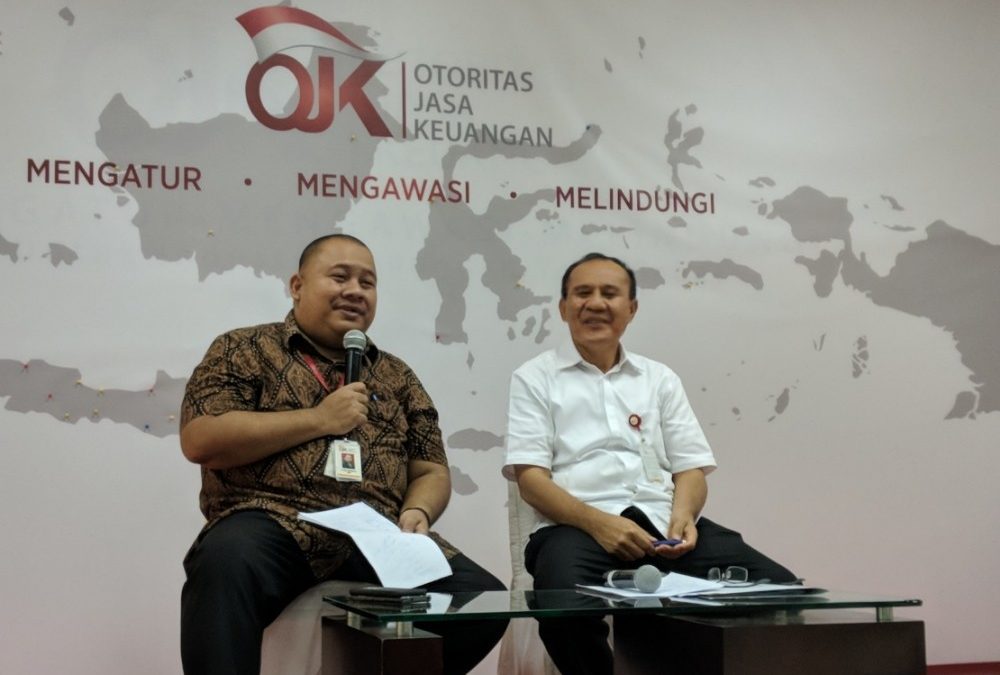The country’s growing peer-to-peer (P2P) lending sector has become one of the most complained about business sectors partly because of high interest rates and aggressive debt collection practices, according to a report.
The country’s growing peer-to-peer (P2P) lending sector has become one of the most complained about business sectors partly because of high interest rates and aggressive debt collection practices, according to a report.
The report by the Indonesian Consumers Foundation (YLKI) shows online lending platforms are the third most complained about business sector while property and banking rank second and first respectively.
“This is the first time that online lending has become one of the five most-complained about business sectors in the country,” YLKI complaints and law division head Sulastri said in Jakarta.
The consumer watchdog received 564 complaints from the public last year. Eighty-one complaints or 14 percent were about online lending services, she said.
Sulastri added customers of online lenders were mostly upset about high interest rates and aggressive debt collection practices.
Moreover, some of the online lenders use applications that reportedly enable them to obtain the borrower’s personal data and pictures. The companies are accused of using the data to humiliate borrowers who default on debt payments.
“One of the customers of the online lenders, for example, complained that a debt collector had threatened to spread her picture if she did not pay her debts,” Sulastri said.
Other customers also complained about the high interest rate charged by the online lenders.
According to the YLKI’s report, the five most complained about online lenders included Rupiah Plus, Pinjam Kilat, Akulaku, Dr. Rupiah and Uang Cepat.
In the report, Rupiah Plus, which is operated by PT Digital Synergy Technology, was listed as the most-complained about P2P lender with 13 complaints.
Last year, the lender was reported to the Financial Services Authority (OJK) by the YLKI for allegedly employing aggressive methods to collect payments from its debtors. The online lender apologized to the public for being unprofessional.
On Jan. 28, The Jakarta Post visited Rupiah Plus’ new office in West Jakarta to get the management’s comments on the YLKI’s report. However, no one was available as the office’s security said CEO Rebecca Wang along with other managerial staff had been out of the office for several days.
The online lending service has grown rapidly in the past three years because unlike banks and other financial institutions, they offer easier lending procedures for borrowers. However, many people have struggled with debt and many lenders have been found to violate regulations and business ethics.
More than 5,000 people have signed an online petition on change.org about online lending practices. They also urged the OJK to step in and resolve the problem.
According to OJK data, total loans distributed through P2P lending platforms stood at Rp 20 trillion last year, a massive 681.25 percent year-on-year increase from 2017’s Rp 2.56 trillion. The number of people who applied for loans had also increased dramatically to 4 million in the last year.
Meanwhile, the non-performing loan (NPL) ratio of P2P lending was around 1 percent in 2018, compared to the NPL ratio of banking at 2.66 percent.
As of December, 88 fintech companies had obtained licenses from the OJK to provide online lending services, but the OJK estimated the number of unlicensed P2P companies could be over a hundred.
To minimize customer complaints, the YLKI’s Sulastri said the government should focus more on protecting the rights of customers by intensifying supervision of the online P2P lending sector.
Meanwhile, in the banking sector, she said, customers mostly complained of mortgage payment failures and administrative issues. As for the property sector, customers mostly complained about refunds and building construction. (das)

